Donington on Bain Primary School Brochure







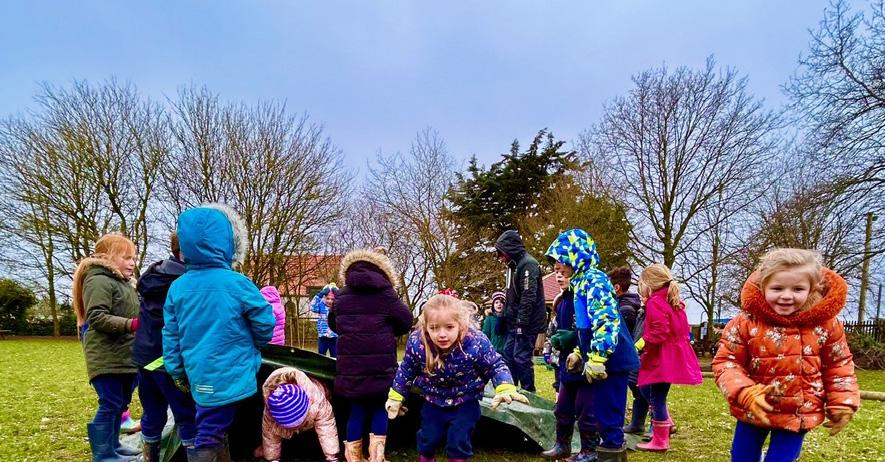
Teaching Staff
Mrs Louise Anyan – Headteacher, Designated Safeguarding Lead
Mrs Katie Thompson – Senior Teacher, Reception Class Teacher, Deputy Safeguarding Lead
Mrs Holly Morgan – Year 1 and 2 Teacher
Mrs Jenna Bollan – Year 3 and 4 Teacher
Mrs Sara Gascoigne – Year 5 and 6 Teacher and SENCO
Mr Stephen Woodcock – Supply Teacher
Mrs Lesley Pringle – Supply Teacher
Mrs Kelly McDowell – Supply Teacher
Teaching Assistants
Mrs Marie-Louise Gough
Mrs Nicky Smith
Mrs Jo Money
Miss Sammie Goy
Mrs Joy Streatfield
Mrs Caroline Bertie-Smith
Mrs Sandra Braithwaite
Mr Lawley (Infants) - JB Sports
Mr Bent (Juniors) - JB Sports
Lunchtime Staff
Mrs Amy Bate
Mr Steve Thompson
Before and After School Club - Cuckoo Club
Ms Janey Glover
Ms Lee Conybeare
Mrs Jemma Osborne
Mrs Sandra Braithwaite
School Office
Mrs Jayne Dyas – School Administrator Monday - Thursday
Mrs Sarah Greig – School Business Manager Wednesday am and Friday
Site Staff
Mrs Amy Bate – Premises
Mr Steve Thompson – School Handyperson

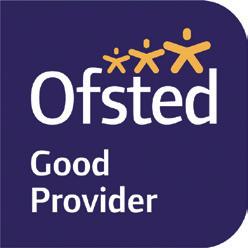
Our most recent Ofsted inspection was in October 2018 and the judgements from the previous inspection in October 2014 were upheld.
Leadership and Management –Outstanding
Behaviour and Safety of pupils –Outstanding Quality of Teaching – Good Achievement of pupils – Good
‘The school is extremely well led and managed. Leaders and governors know the school inside out and are fully committed to the continual improvement of the school.’
‘All parents who responded to Ofsted’s online questionnaire, Parent View, would recommend the school to others.’
‘Children do well from their starting points in the Reception year. They benefit from the high-quality learning environment that you have created, both indoors and outside.’
‘Children work well with each other and they enjoy their activities.’
‘The school’s interesting curriculum, which is suitably modified to provide appropriate challenge for all learners captures pupil’s interest and stimulates them to want to learn.’
Class 1 Reception
Class 2 Year 1 and Year 2
Class 3 Year 3 and Year 4
Class 4 Year 5 and Year 6
We are a small school and therefore have mixed age classes. Our individual year groups often vary in size so we do have to change this model from time to time so that we can meet the needs of our pupils.
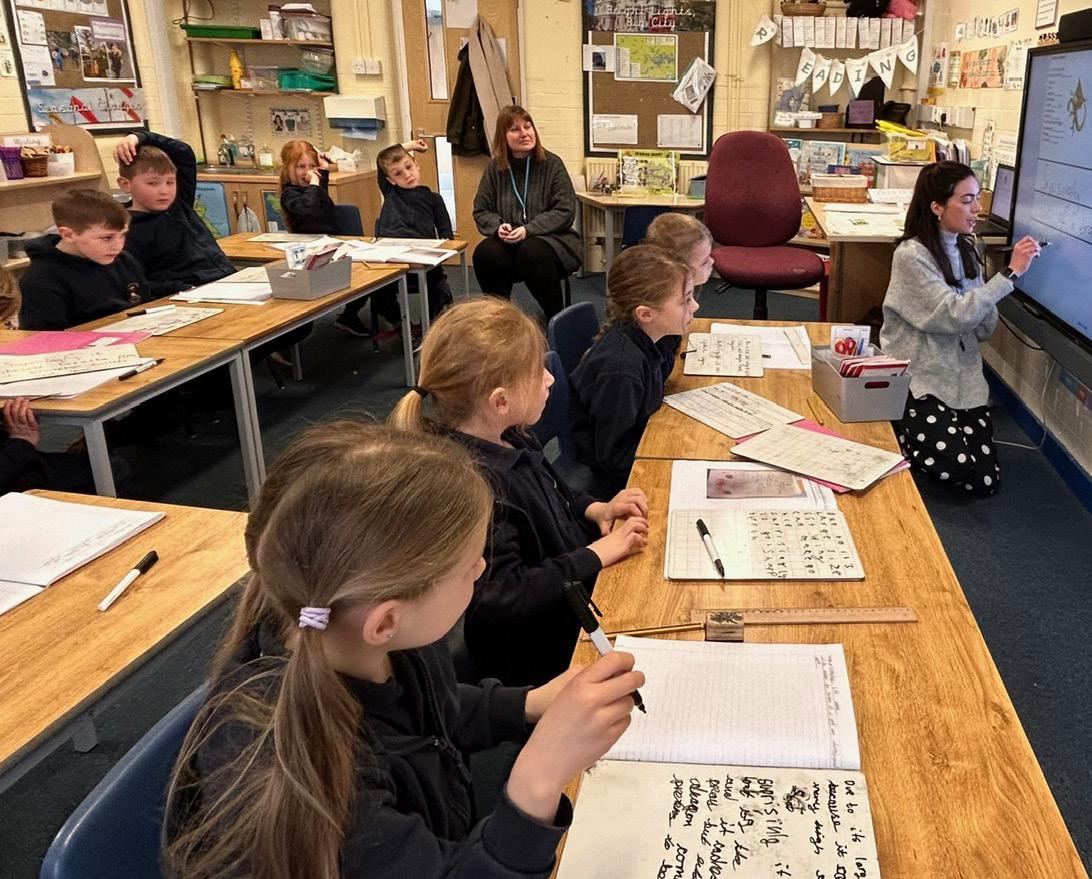
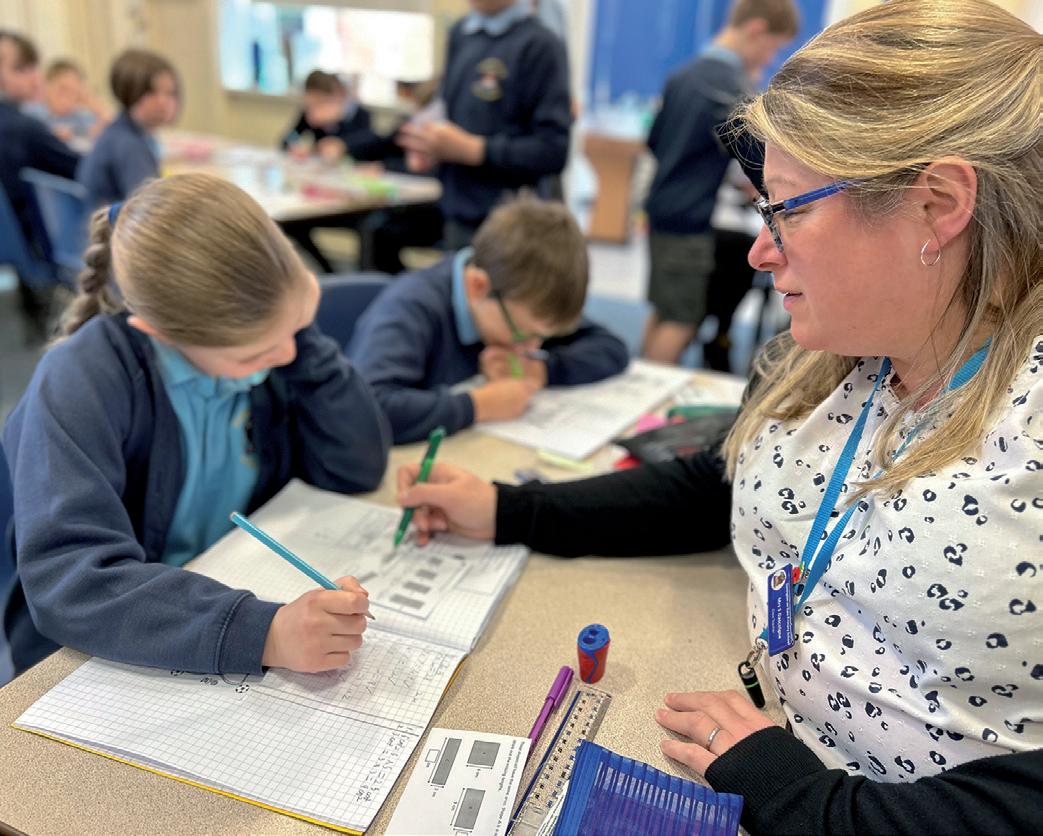
We have beautiful surroundings at Donington on Bain Primary School including our school field, pond and outdoor classroom.
Children can access these areas all year round. A pair of wellies is an essential part of our uniform requirements so children can access these areas all year round.
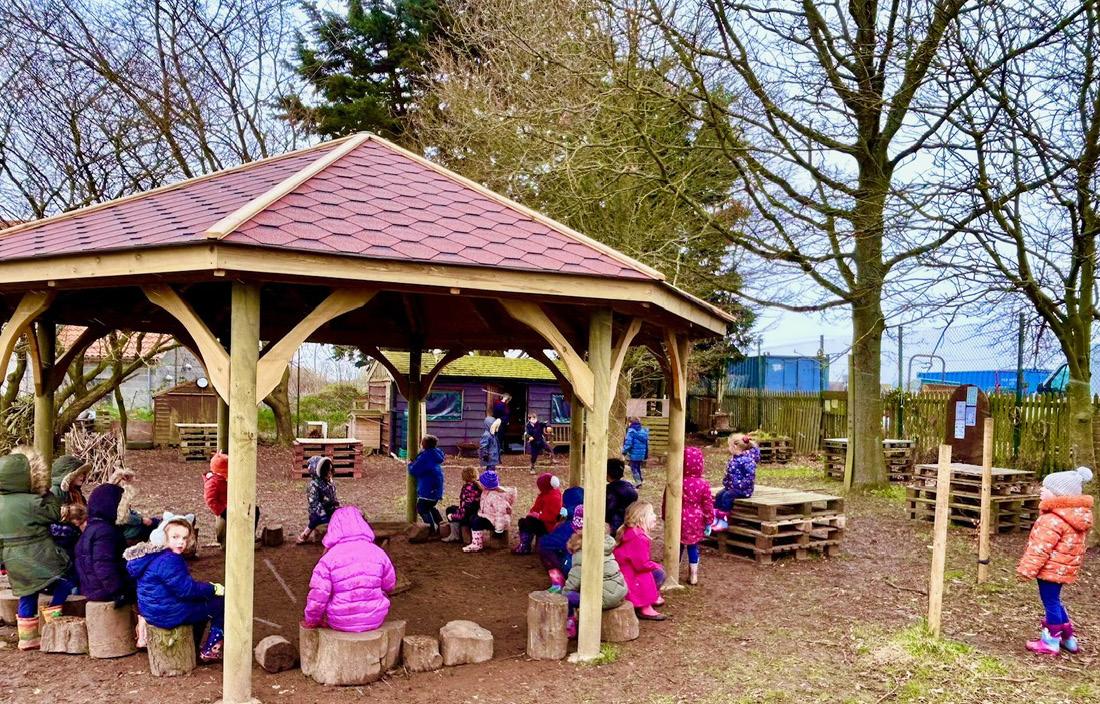
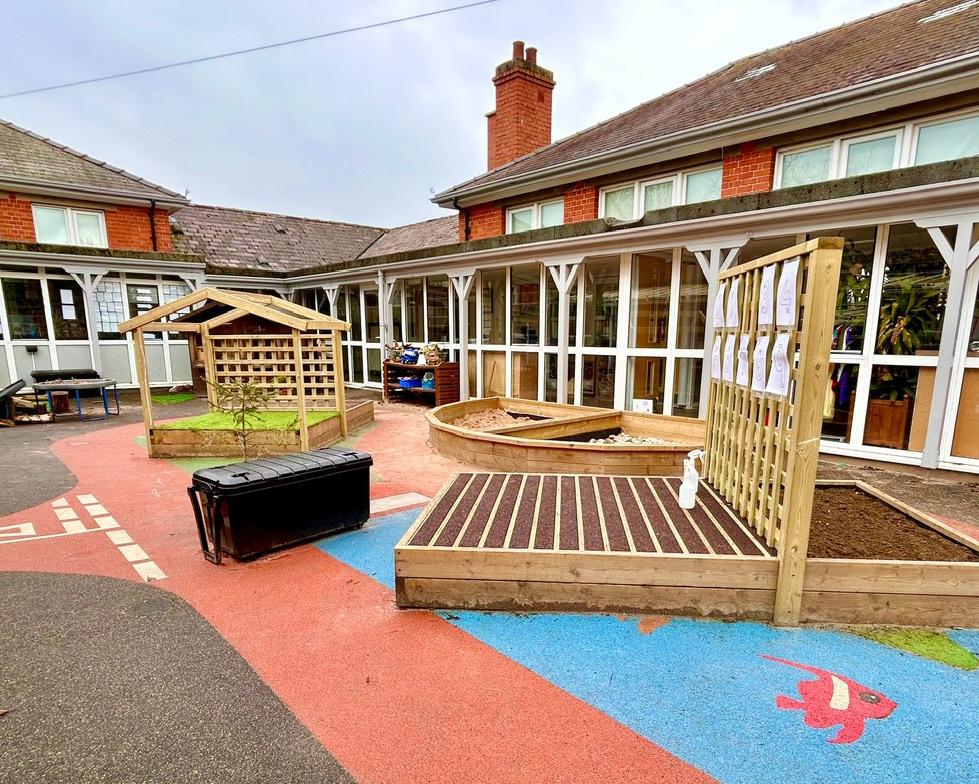
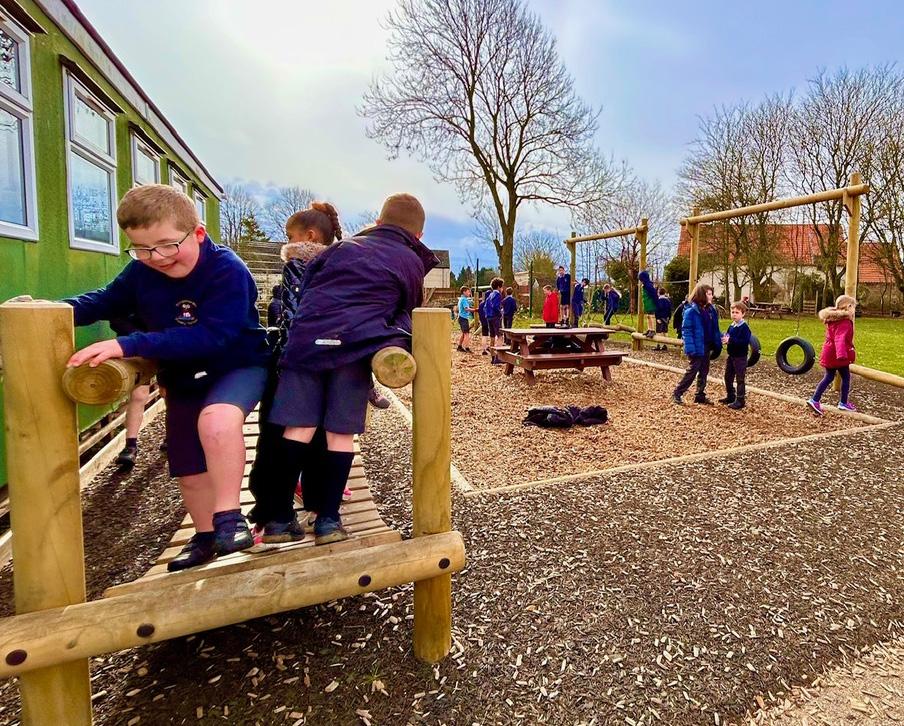
Our curriculum is based upon 7 broad areas of learning; each child’s progress and development is reported to the Department for Education at the end of their Reception year against set Early Learning Goals.
These areas of learning include:
Personal, Social and Emotional Development through which children gain confidence and self-awareness, the ability to manage their feelings and behaviour and learn about building effective relationships with others.
Communication and Language through which children learn about listening, attention, understanding and speaking.
Physical Development which emphasises gross and fine motor skills in moving and handling, as well as health and self-care.
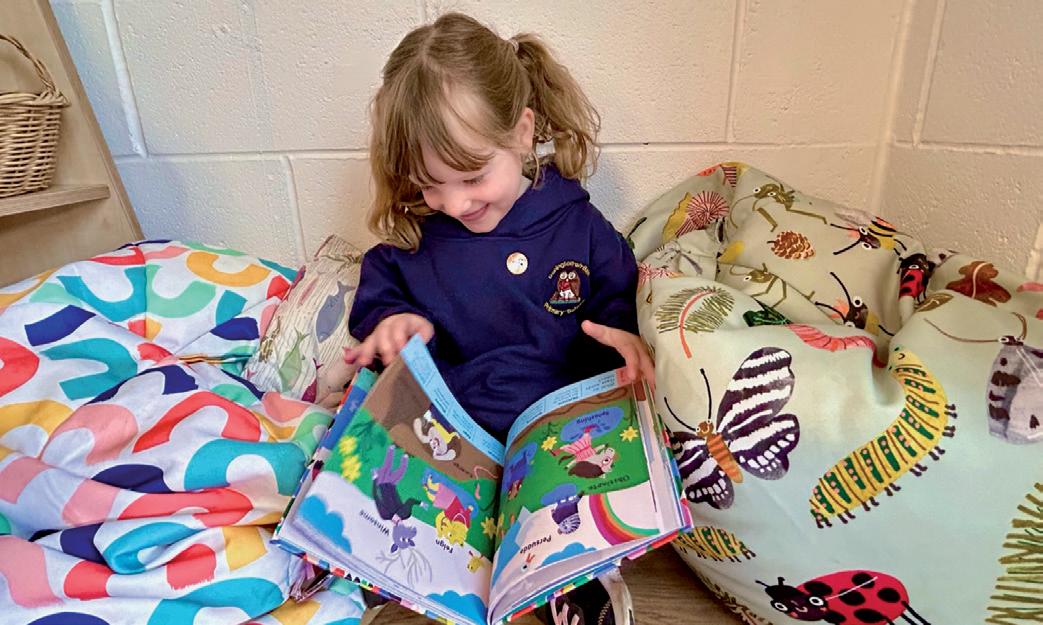
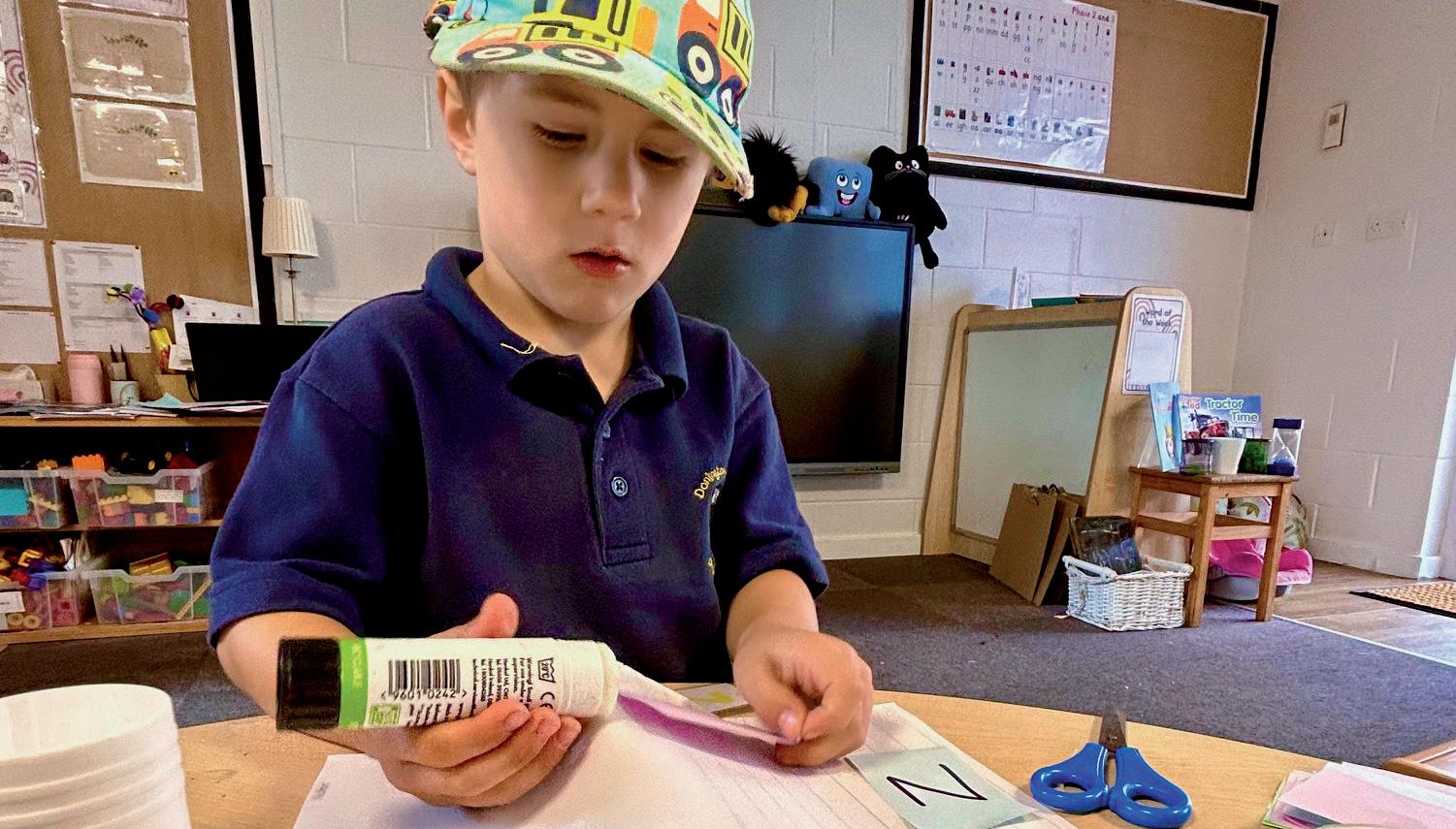
Literacy: Early reading and writing skills, explicit daily teaching of phonics, recognising common and irregular words, reading and understanding simple sentences and talking about what they have read; children will begin to use their phonic knowledge to build and write words and construct simple sentences.
Mathematics: Based around counting reliably from 1-20, understanding number order and beginning simple addition and subtraction; children will also experience solving mathematical problems by talking about shapes, weight, capacity, time, money, halving and measuring and comparing everyday objects.
Understanding the world:
Enables children to base their learning on what they understand of the world around them through talking about past and present events within their own families, being aware of the differences and similarities between others and among families, communities and traditions; children will observe the differences in their environment, learn about plants and animals and talk about changes. They will also use a range of different technologies, selecting and using them for different purposes.
Expressive Arts and Design: Children will sing songs and create their own music and dance. They explore a range of materials, tools and techniques to look at different colours, design and texture in their artwork and are given opportunities to be imaginative through art, music, role play and stories.
Children in Reception typically learn by playing and exploring, being active, and through creative and critical thinking which takes place both indoors and outside. We use the continuous provision approach in our school as we believe this promotes all of the different ways a child learns.
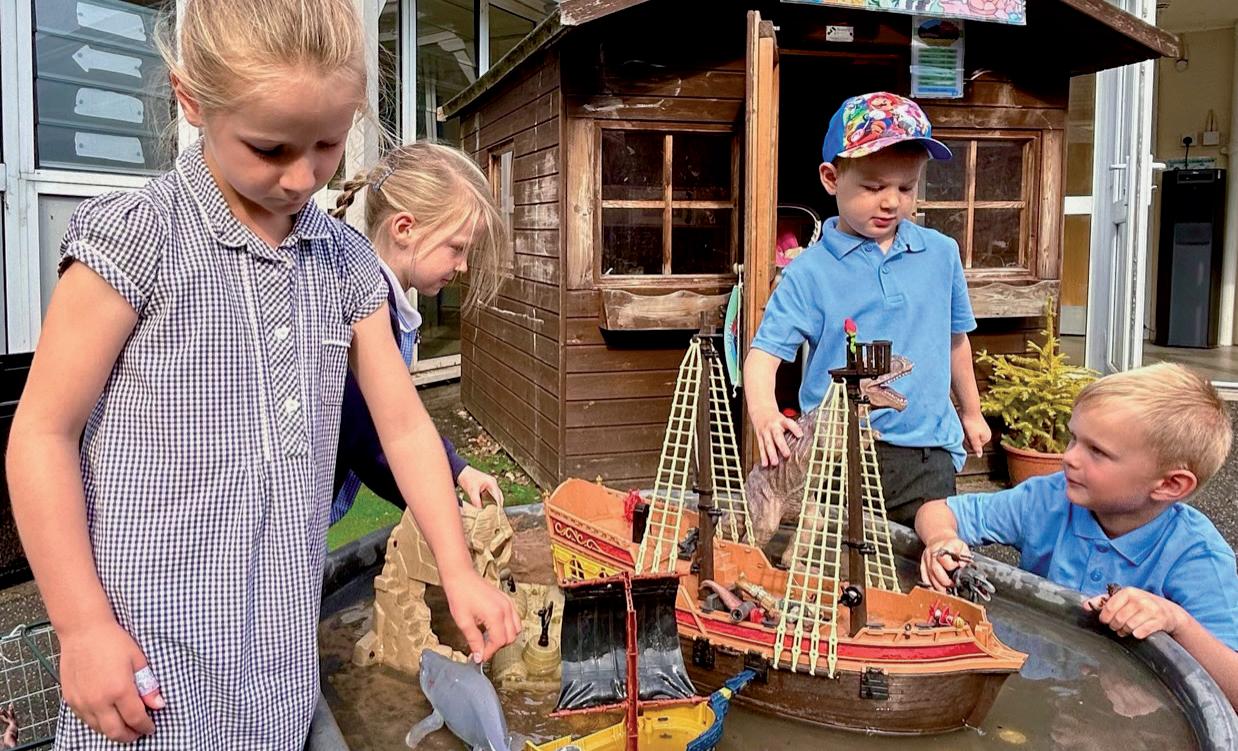
Continuous provision describes all the different provision areas which are available for your child to use every day. Within each of these areas of provision there is a core range of resources that children use all the time, throughout the whole year. This provision is added to throughout the year to reflect the interest and learning goals of the children.
We plan continuous provision carefully to enable the children to learn new skills, challenge their thinking and help to embed concepts. It also provides the context for a variety of learning conversations between children and adults with rich opportunities for modelling and extending speech and vocabulary. Throughout the year there is an ongoing judgement made by staff about the balance between activities led by children and activities led or guided by adults.
At the end of the summer term of the Reception year, the class teacher completes an assessment which is known as the EYFS profile. This assessment is based on what they, and other staff caring for your child, have observed over a period of time. All the information collected is used to judge how well your child is doing in relation to the 7 areas of learning and development.
Parents’ evenings are held in October and February. An annual report is issued in July.
The teaching of phonics aims to build children’s speaking and listening skills as well as to prepare children for learning to read by developing their phonic knowledge and skills.
Phonics is a method of teaching children to read by linking sounds (phonemes) and the symbols that represent them (graphemes, or letter groups). At Donington on Bain Primary School, we use the Little Wandle Letters and Sounds Revised scheme. Further information about this scheme can be found at https://www. littlewandlelettersandsounds.org.uk/ resources/for-parents/
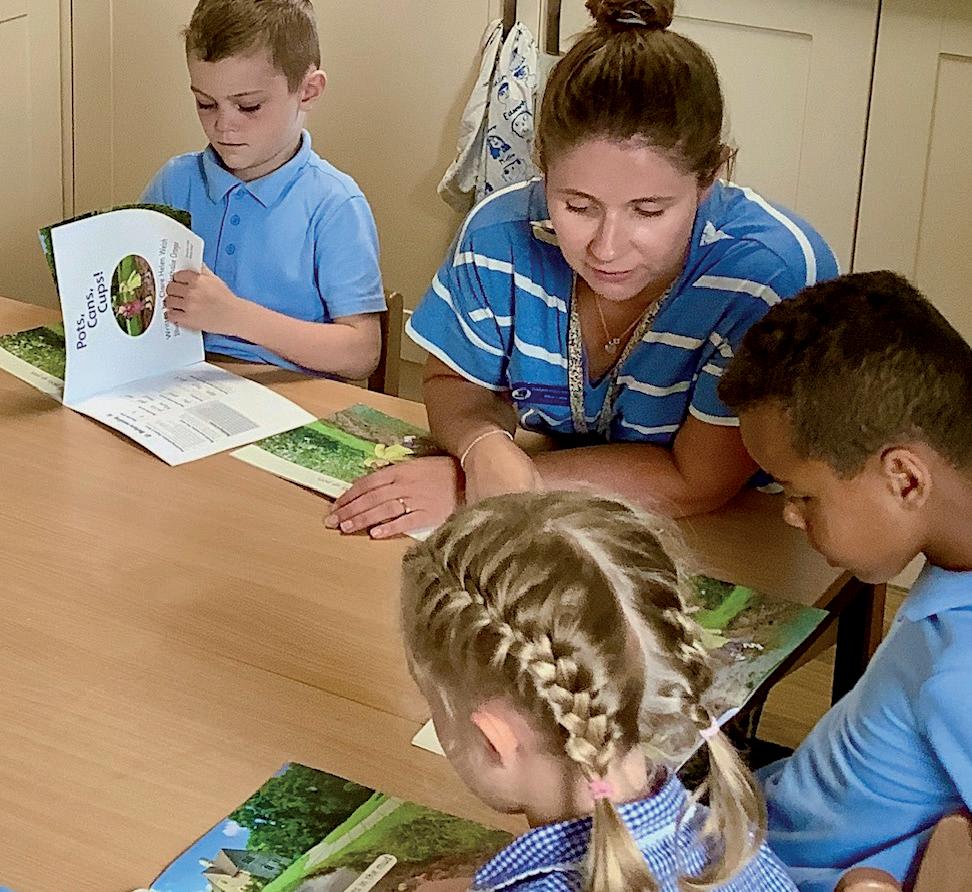
We ensure a smooth transition from Reception to Year 1 by building on the continuous provision the children have in place during the Reception year.
Children in Key Stage 1 (year 1 and 2) follow the National Curriculum for England and Wales. This includes daily English and Maths lessons based on the National Curriculum 2014.
ICT, History, Geography, Science, Music, Art and Technology are taught through crosscurricular themes and continuous provision which also emphasise the application of the skills learnt in English, Maths and Computing. For example, the study of a topic on space provides opportunities for children to use Computing not ICT and reading skills to research planets, create charts and graphs, and use their creative skills to represent space creatures in pictures and models.
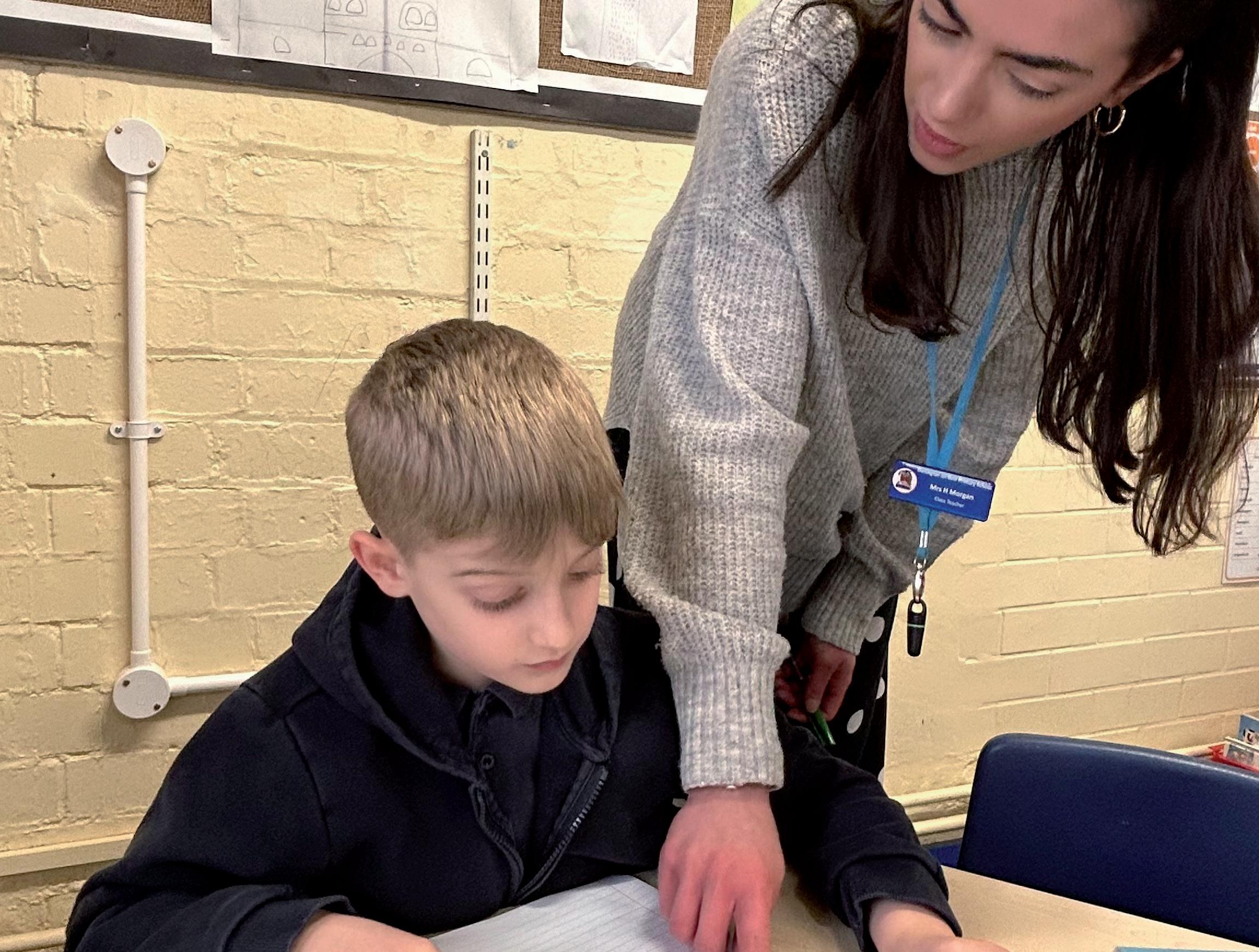
The children in Key Stage 2 also follow the National Curriculum for England and Wales, which includes daily English and Maths.
Other subjects included in the National Curriculum are Science, History, Geography, Modern Foreign Languages, Design and Technology, Art and Design, Music, Physical Education, Computing and Religious Education.
In KS2, some subjects are taught as a distinct subject such as Science or Music. Other subjects like Geography and History are suitable for being taught through a topic-based approach. Learning is enriched through visitors, artefact collections and visits to places of interest in the locality and further afield.
Our chosen modern foreign language is French.
Nature School operates on the principle that children of all ages can benefit greatly from the hands-on learning opportunities inherently present in an outdoor environment. It offers children a way to learn and experience a broad curriculum in the outdoors.
All pupils have Nature School lessons throughout the school year.
Mrs Smith is our very enthusiastic and passionate Nature School lead!
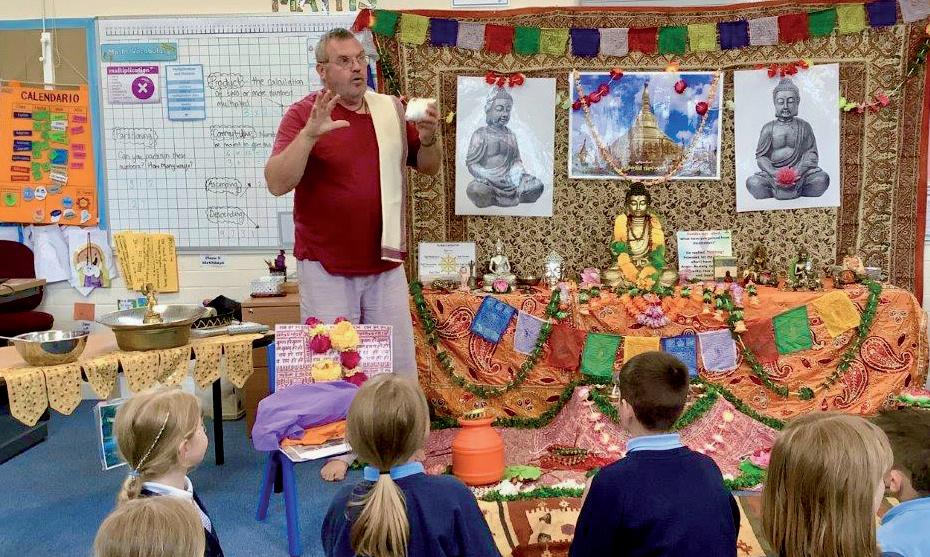
At Donington on Bain we comply with the statutory requirement to include RE in the curriculum and to provide a daily act of collective worship of a broadly Christian nature for children. We recognise that many of our pupils may be of other faiths or no faith; however, we believe that all pupils should have the opportunity to learn about the Christian faith and other world religions. They also need the opportunity to explore and reflect on values, spirituality, awe and wonder.
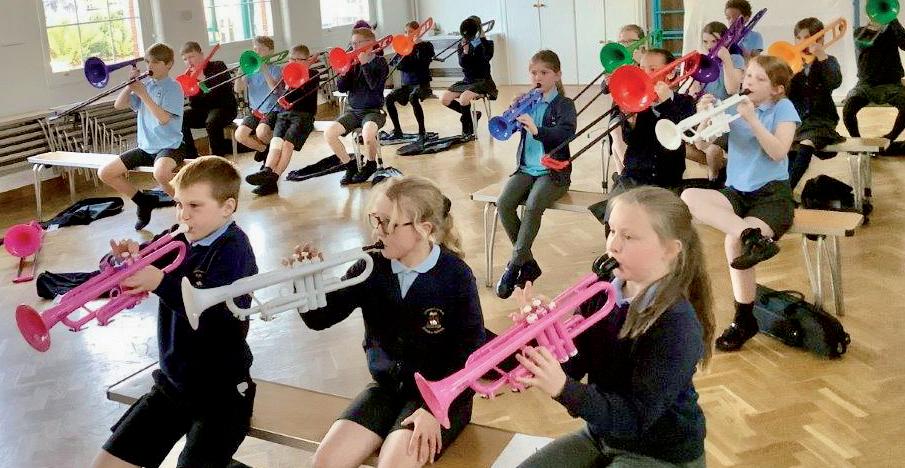
The school works closely with the Lincolnshire Schools Music Service. The school also uses Kapow to support music teaching throughout the school.
We are committed to sport at our school. The Sports Premium enables us to employ specialist sports teachers who deliver quality PE lessons as well as lunch and after school clubs. We engage in many competitive events throughout the school year via the Inter-School Sports Wolds Partnership.
Every year, we hold a Sports Day and families are very welcome to come and watch.
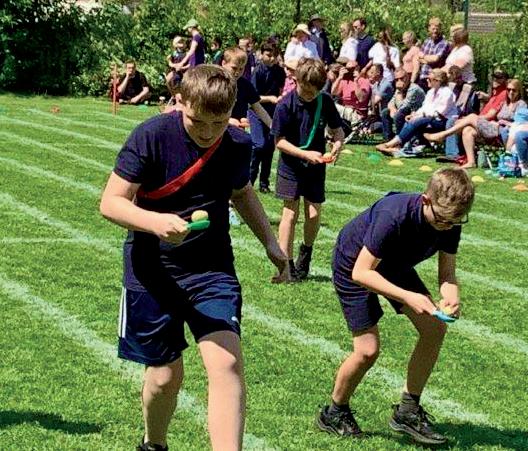
All pupils are expected to be able to swim 25 metres by the end of the primary phase and swimming lessons are provided. These usually take place in KS2 and during the summer term.
There are three assemblies each week. Celebration Assembly is open to parents and this takes place on a Friday afternoon. This is where we celebrate the children’s work and Stars of the Week are awarded.
All pupils will go on a wide variety of trips throughout their time at Donington on Bain. Some of the places the children have visited are The Deep, Woodside Wildlife Park, The Collection and Eden Camp.
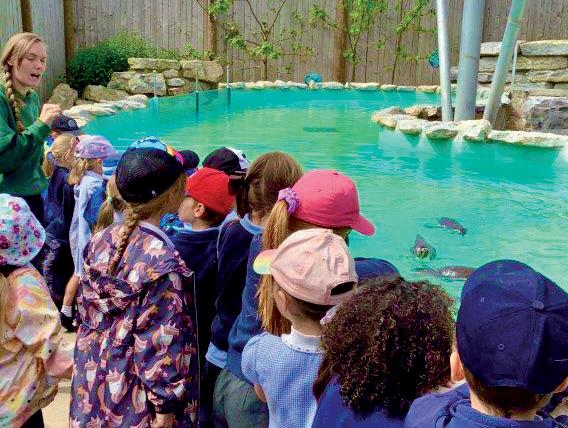
Every other year, the pupils in Year 5 and 6 are given the chance to go on a residential trip. This trip includes outdoor adventurous and team building activities.
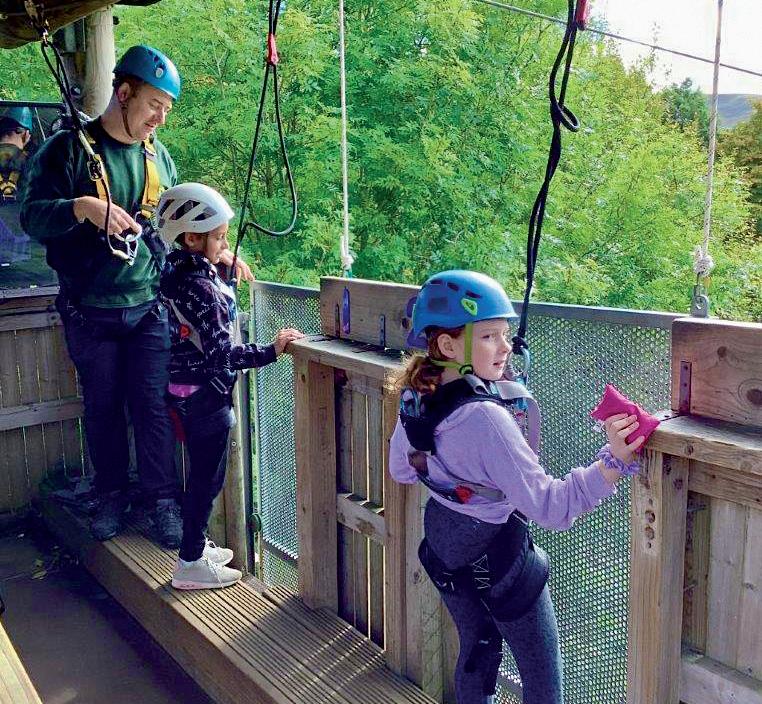
The main means of communicating with parents is via email and text message (through ScholarPack - details of how to create an account will be provided).
If you would prefer to receive paper copies of any correspondence this can be arranged by contacting the school office. The school also has a Facebook page where you can keep up to date with what is happening in school.
The school has an ‘open door’ policy and parents/carers are welcome to speak to their class teacher at any point throughout the year about their child’s progress or any other queries or concerns.
Please contact the school office by phone (01507 343240) or email enquiries@ dobps.net and we will get back to you as soon as we can.
Parents evenings are a valuable way of being kept informed about your child’s progress. The school holds two Parents’ evenings each academic year – October and February.
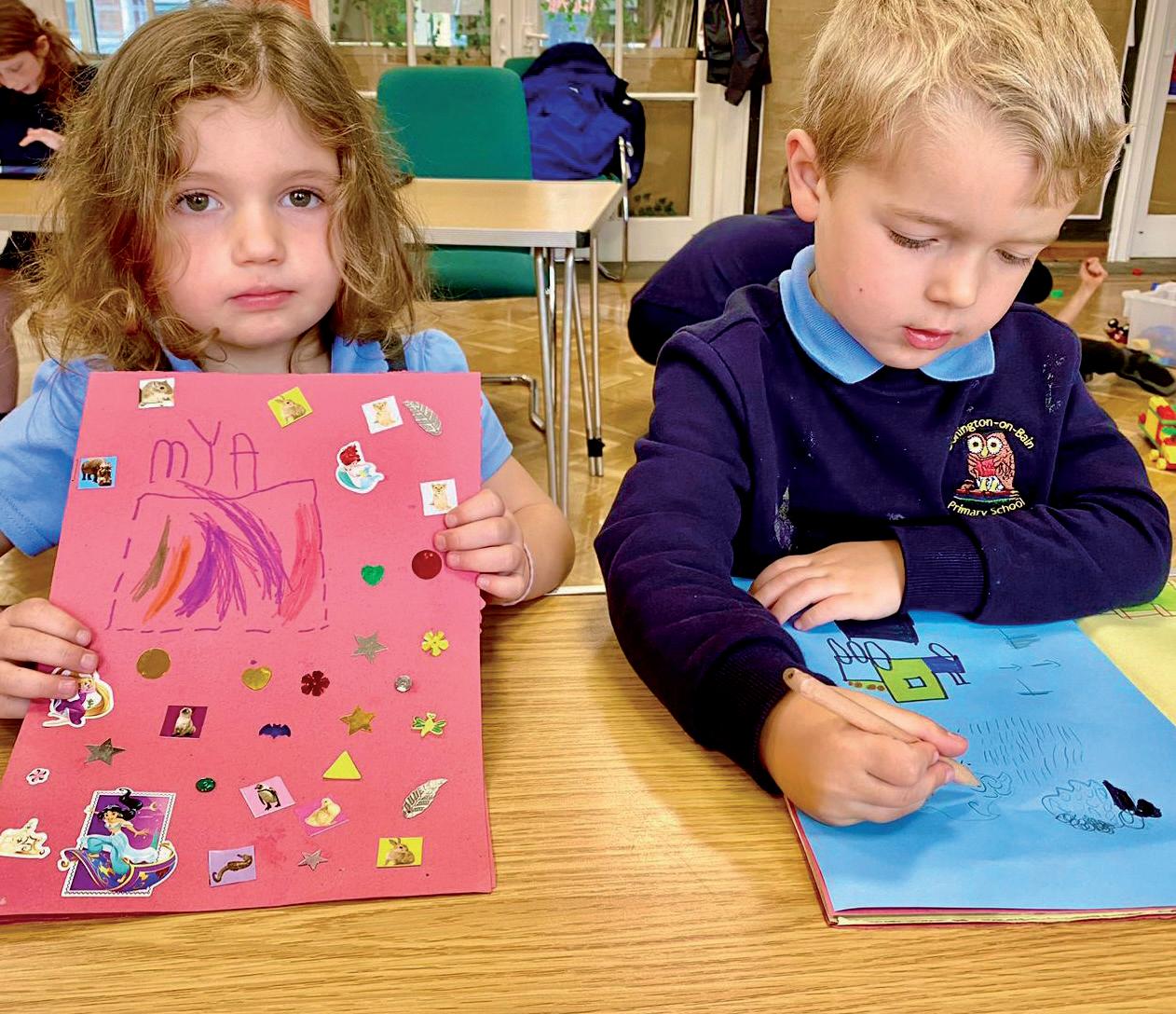
Pupils in year 1 to 6 will receive an annual report in July. Please see the section about the Early Years Foundation Stage for information about reporting arrangements in the Reception year.
We run a before and after school club. This is known as the Cuckoo Club. Opening times are 7:30am - 9.00am and 3:30pm5:30pm. Bookings should be made via the School Money app. https://login.eduspot. co.uk/public/portal/?app=schoolmoney& source=website&version=20190314
Please be prompt when dropping your child off or collecting them from Cuckoo. If you miss the drop off or collection time you will need to wait until the next slot.
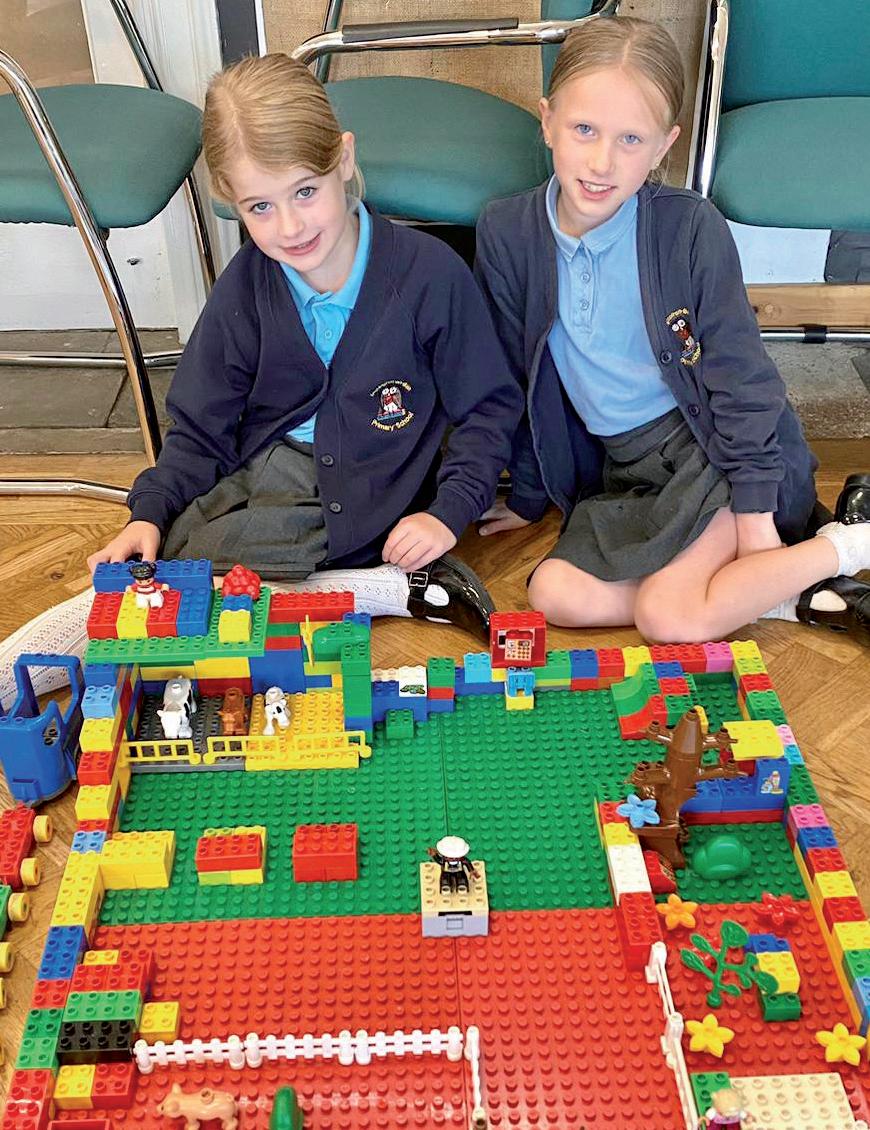
School Money is our school online payment system that lets parents make secure online payments by credit and debit card. It is used to make cashless payments for school activities like trips and clubs. Information regarding this will be issued when your child is admitted to school in September. It is also used for parents to provide consent to activities.
It is vital you inform the school if your child has any allergies.
All children in Reception, Year 1 and Year 2 are entitled to a free school meal. A menu will be sent out via our lunch providers, Farm Kitchen. Whilst pupils in this age range or those in receipt of Free School Meals do not have to pay for their meals it is important that you choose from the options available and checkout at the end of process.
There are a range of options available, including vegetarian and we can also cater for those with food allergies. Our meals are provided by Farm Kitchen. If your child is bringing a packed lunch, food and drinks should be packed in plastic containers or cartons. In the interest of safety, no glass containers please.
Year 3 – 6 pupils have the option of bringing a packed lunch or choosing a hot school meal. Unless you are in receipt of Free School Meals these will have to be paid for. Details of how to check if you are eligible for Free School Meals are included further down.
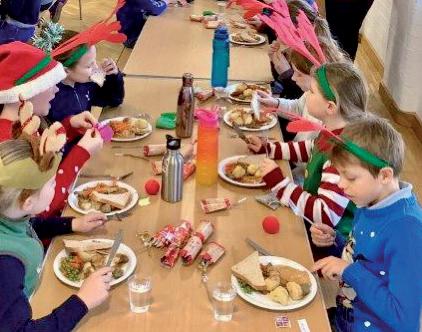
Children can have a snack at morning break. We do our best to promote healthy eating and encourage our parents and families to do the same.
Your child may be able to get free school meals if you get any of the following:
l Income Support.
l income-based Jobseeker’s Allowance.
l Income-related Employment and Support Allowance.
l Support under Part VI of the Immigration and Asylum Act 1999.
l The guaranteed element of Pension Credit.
l Child Tax Credit – subject to certain criteria.
l Working Tax Credit run-on - paid for 4 weeks after you stop qualifying for Working Tax Credit.
l Universal Credit – subject to certain criteria.
Children who get paid these benefits directly, instead of through a parent or guardian, can also get free school meals. Please contact the Local Authority https:// www.lincolnshire.gov.uk/school-pupilsupport/apply-free-school-meals if you think you may qualify.
If you qualify for this support the school will receive extra money to support the education of its pupils. This is also known as Pupil Premium.

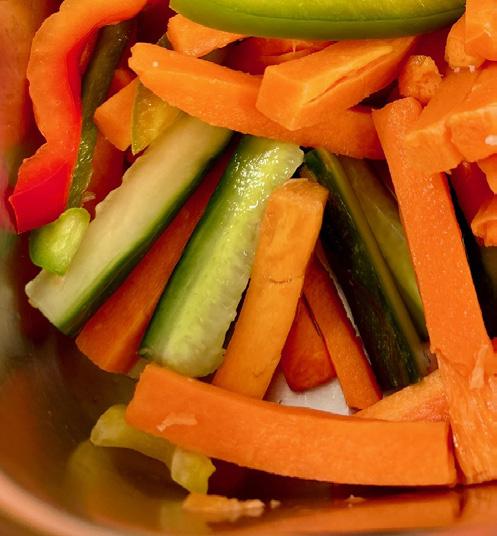

The Pupil Premium was introduced in April 2011 and is allocated to schools to work with pupils who have been registered for free school meals at any point in the last six years (known as ‘Ever 6 FSM’).
Schools also receive funding for children who have been looked after continuously for more than six months, and children of service personnel.
The Government believes that the Pupil Premium, which is additional to main school funding, is the best way to address the current underlying inequalities between children eligible for free school meals (FSM) and their peers by ensuring that funding to tackle disadvantage reaches the pupils who need it most.
In most cases the Pupil Premium is paid direct to schools, allocated to them for every pupil who receives free school meals. Schools decide how to use the funding, as they are best placed to assess what their pupils need.
They are held accountable for the decisions they make through:
l The performance tables which show the performance of disadvantaged pupils compared with their peers.
l The new Ofsted inspection framework, under which inspectors focus on the attainment of pupil groups, in particular those who attract the Pupil Premium.
l The new reports for parents that schools now have to publish online.
l Funding for additional staffing.
l Out of hours activities.
l School Resources including ICT.
Dresses
Skirts
Trousers
Shorts
Grey pinafore or culotte style.
Blue gingham dresses during the warmer months.
Grey - knee length.
Grey.
Grey – knee length or no shorter than mid-thigh.
Jumpers/cardigans Dark blue.
Polo shirts/shirts/ blouses
Shoes
Wellington Boots
Socks
Tights
Coats
PE
Shorts/jogging bottoms/leggings
Polo shirt
Socks
Jumper or hoodie
Light blue.
Dark blue or black.
Open toed shoes or crocs are not permitted. Trainers are only permitted for PE.
A named pair of boots to be left in school.
White, black, dark blue or grey (it is useful to have a spare pair of pants and socks kept in a bag at school in case of accidents).
Black, dark blue or grey.
No specified colour.
Please ensure your child is dressed in a coat appropriate for the weather.
Dark blue or black.
Cycling shorts are permitted and all shorts should be no shorter than mid-thigh.
Navy polo shirt.
White, black, dark blue or grey.
Dark blue.
PE will be outside as much as possible.
Shoes Trainers (white or black)
Coat
Wellington Boots
Waterproof dungarees or trousers
A pair of long trousers/ jogging bottoms/ leggings
A waterproof coat – please also ensure that during the winter months a warmer outdoor coat is provided.
A named pair of boots to be left in school.
No specified colour.
Blue or grey.
Long trousers must always be worn for Nature School. This is for safety reasons.
The school logo can be embroidered on items of clothing, but this is not a requirement. Please follow the link to find out more https://myclothing.com/collections/the-doningtonon-bain-school-7798. Uniform is available to purchase from Cojo’s in Louth. Please ensure you name items of clothing!

The school has a uniform rail available to all parents throughout the year with items for 50p.
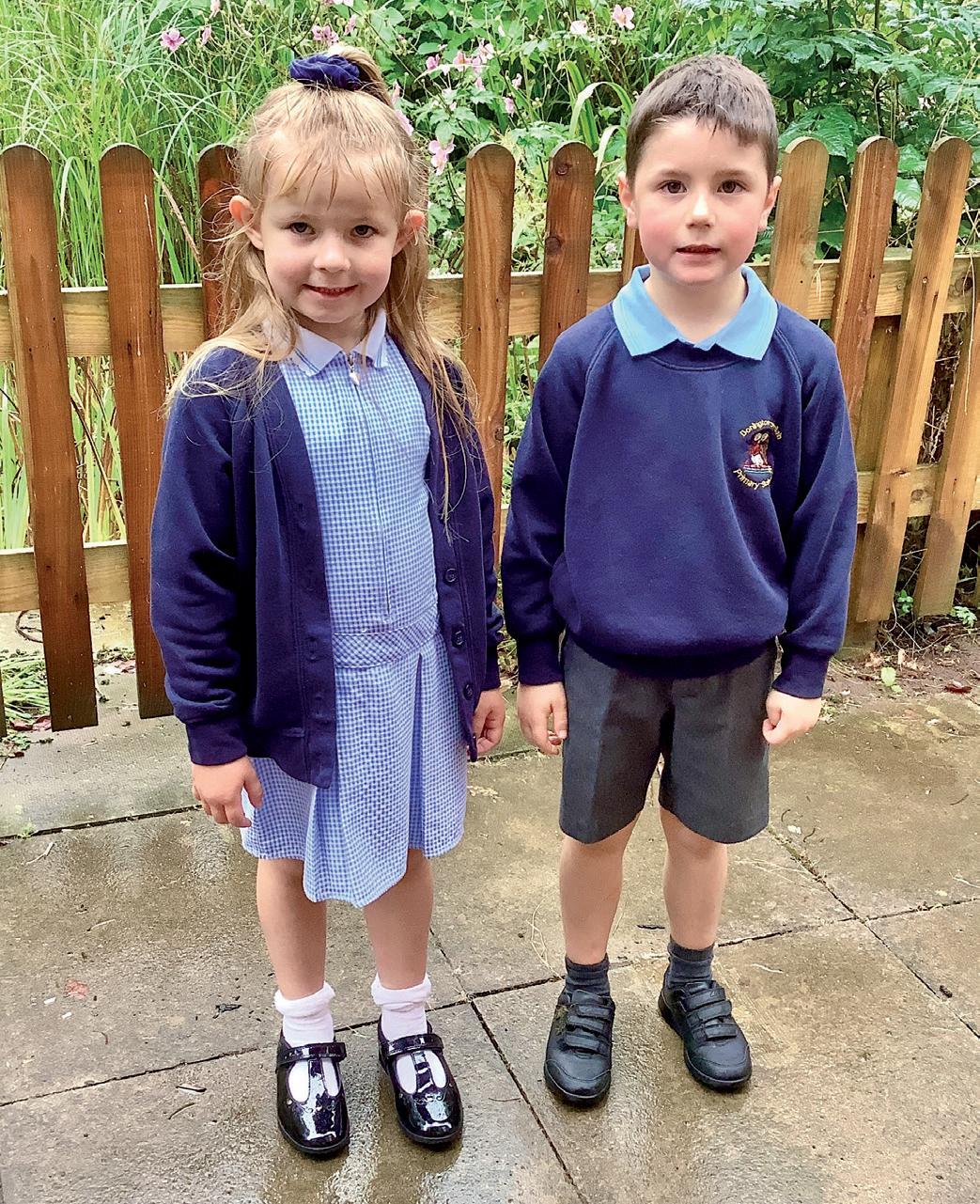
9.00am School opens
10:30am – 10:50am morning break
12.00pm – 1.00pm Lunchtime for Reception, Year 1 and 2
12:30pm – 1:30pm Lunchtime for Year 3, 4, 5 and 6
3:30pm – School Closes
AM
Children should be at the school gate for 8.55am.
A member of staff will be on duty to meet the children.
The gate will be locked at 9:00am. Late arrivals should report to the school office.
PM
At 3:30pm the children are taken to the school gate by their class teacher.
The children who travel by bus will be taken to each bus by a teacher and a register will be taken. The teacher on duty will make sure children are seated properly and are wearing a seatbelt.
Pupils who are collected from school will only be allowed to leave the school site when the parent/carer is there to collect them.
Please ensure the school is informed if your child’s home time arrangements change. This includes any after school play dates where the child will be going home with a different parent/carer.
Children will be sent home in the usual way unless the school is informed otherwise. For example, bus children will be put on the bus unless the school has been contacted to say that there is a change.
You must contact the school by 9:20am daily to report any absences. You can leave a message on the answerphone, email or speak to Mrs Dyas in the school office.
jayne.dyas@dobps.net
All unknown absences will be chased up by a member of staff.
We understand that it can be difficult to get medical appointments out of school hours. If you need to take your child out of school for this reason, please contact the school via the methods referred to above. Pupils who are collected during the school day will be required to sign them out.
Please let us know if your child has any medical conditions, allergies or food intolerance.
If your child needs an inhaler one must be provided which can remain at school. You will also need to provide the school with an asthma plan for your child.
The school operates a single admission policy. The planned admission limit is 15. If applications for admission exceed the number of places available, appeals procedures are in place for parents to appeal for a place through the LEA. The LEA allocate school places – parents need to apply directly to the LEA not the school of their choice.
Admission Criteria to be applied when we have more applications than places
1. The child is in the care of the local authority.
2. There is a brother or sister at the school who will be attending when the child is due to start.
3. The school is the nearest one to the home address.
4. The distance from the home to the school.
The full details of the school’s admissions policy is available on the school website or a paper copy can be obtained from the school. www.dobprimary.co.uk/ admissions-information
If your child is starting primary school they may be eligible for school transport. If you think your child is eligible, please apply for transport as soon as you have your offer of a school place. Applications can be made online at the website below or a telephone application can be made by contacting the Customer Service Centre on 01522 782020.
For more information about the home to school transport policy and online applications please go to www. lincolnshire.gov.uk/school-collegetransport. Queries can be emailed to schooltransportapplications@lincolnshire. gov.uk.
This is a great way of meeting other parents/carers and getting involved with the life of our school. FODOBS organise several fundraising events throughout the year and always welcome new members. Without the support of our parents/ carers many of the additional activities the children enjoy would not happen. FODOBS support the school with music tuition, Nature School, school trips and so much more. New members bring fresh ideas, support at events and help our pupils continue to access quality provision and resources.
Over the years FODOBS have hosted many events including a sponsored walk, Christmas and summer Fair, Pop up restaurant, Chocolate bingo, a Scarecrow Festival and school discos to name but a few.
If you would like to help support our school, please contact the school office in the first instance and we can put you in touch with a member of the FODOBS team.
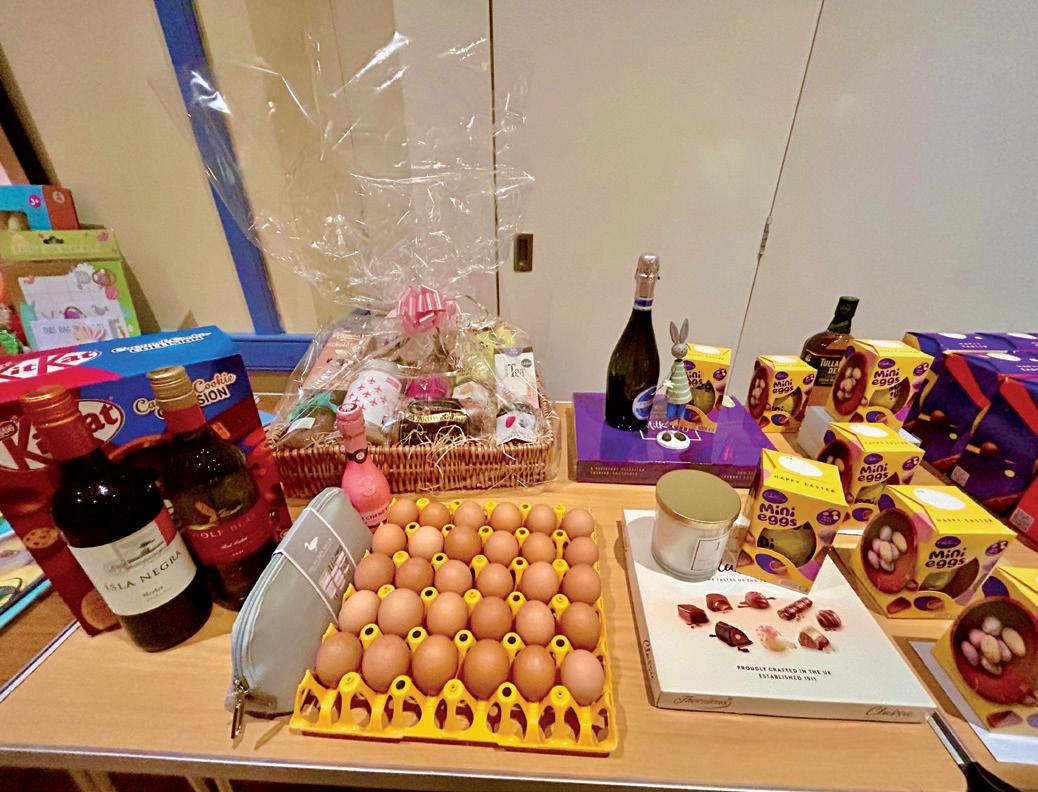
Mrs Sara Gascoigne is the school’s SENCO (Special Educational Needs Coordinator)
Special Educational Needs can be an emotive area, but we would like to emphasise the following two points
1. All staff members of Donington on Bain Primary School believe that every child has an entitlement to personal, social and cognitive development and must be given the opportunity to achieve his/her potential in learning.
2. Likewise, all staff members of Donington on Bain Primary School believe that every child should have access to high quality and appropriate education.
A pupil has Special Educational Needs if he or she requires additional or different provision from that normally provided by the school. The school has a policy for Special Educational Needs and Disabilities (SEND) and follows the Code of Practice. Parents are fully involved in all discussions about their child’s progress and are welcome to discuss any concerns about their child’s progress, development or welfare with the class teacher, Head Teacher or Special Educational Needs and Disability Co-Ordinator (SENDCO).
Sometimes outside agencies will be asked to work with a child. This will never be done without parental consent.
We seek to provide the best care for children at all times.
The school is committed to ensuring that pupils are aware of behaviour towards them that is not acceptable and how they can keep themselves safe. We inform pupils of whom they might talk to, both in and out of school, their right to be listened to and heard and what steps can be taken to protect them from harm through Personal, Social and Health Education.
The staff strictly follows policies and procedures which are regularly reviewed. Members of the school community must report any concern over a child to the Designated Safeguarding Lead –Louise Anyan who has a duty to pass on information to Social Services. The Deputy Safeguarding Lead is Katie Thompson.
The internet is an essential element in 21st century life for education, business and social interaction. The school has a duty to provide students with quality Internet access as part of their learning experience. The school Internet access is designed expressively for pupil use and will include filtering appropriate to the age range of pupils.
Advice on e-safety is introduced at an age-appropriate level to raise the awareness and importance of safe and responsible internet use.
It is our promise to you that we will continually monitor what the children access and enable them to understand how to use the internet safely.
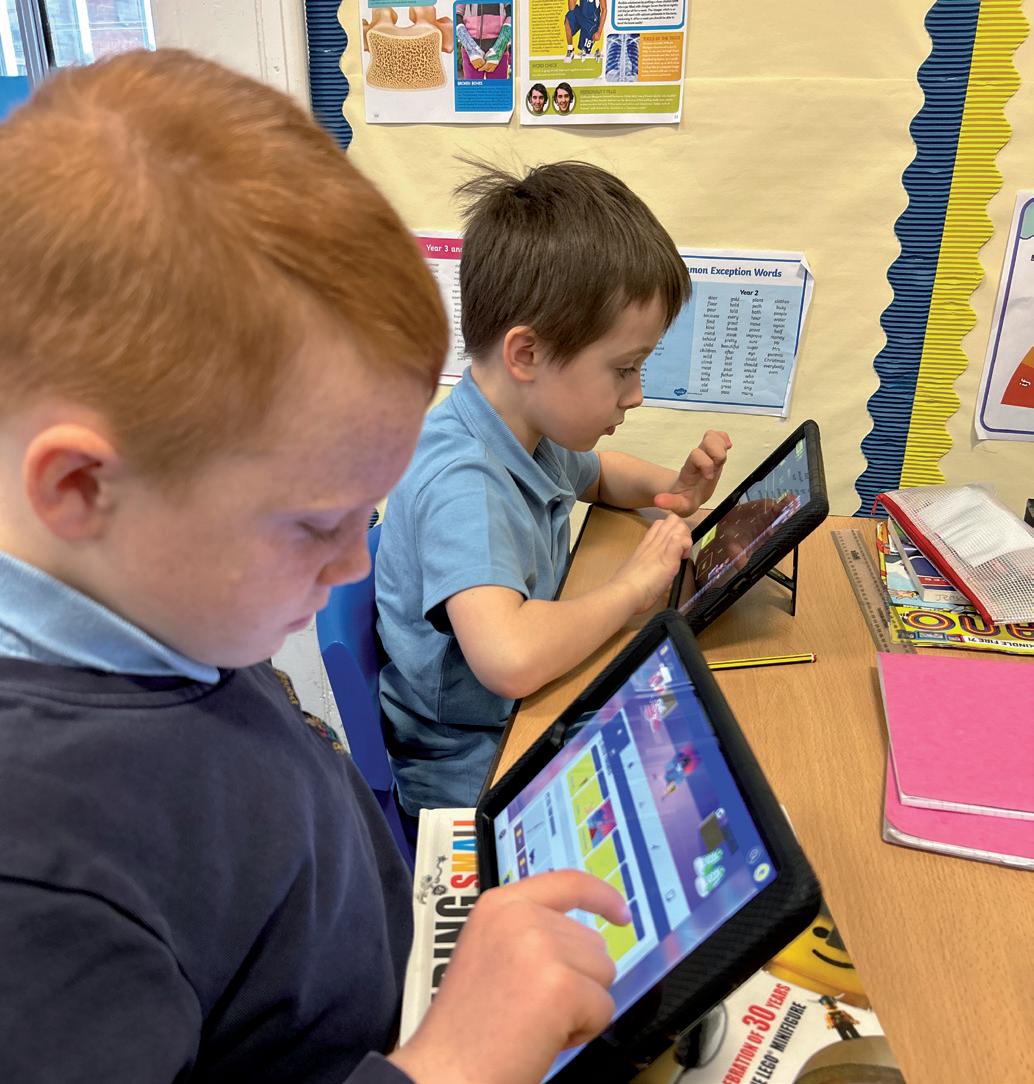

Gold School Games 2021/22 and 2022/23
Award for commitment and engagement
Music Mark 2022/23
Committed to providing a high quality music education
Woodland Trust Green Tree Award
ELSA Network (Emotional Literacy Support Assistants)
Supporting well-being, social and emotional needs of children
National Curriculum Tests Y6
2018/19
Above average in Reading, Writing, Reading Writing Maths Combined
2021/22
Above average in Reading, Writing, Maths, Reading Writing Maths Combined, Grammar, Punctuation and Spelling
2022/23
Above average in Reading, Writing, Maths, Reading Writing Maths Combined including 40% achievement in greater depth for writing
School Contact Details
Tel: 01507 343240
enquiries@dobps.net
Donington-on-Bain Primary School
Main Road, Donington-on-Bain, Louth, Lincolnshire, LN11 9TJ.
www.dobprimary.co.uk